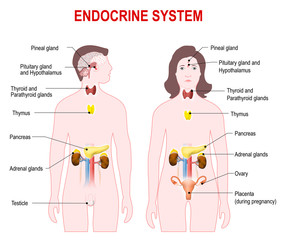- A Located inferior to the urinary bladder
- B Secretion is thin and milky colored
- C Secretion is acidic in nature
- D Function in increasing the mobility of the sperm
- Share this MCQ
The prostate gland is a walnut-sized gland located just below the urinary bladder in males. It secretes a thin, milky-colored fluid that is alkaline in nature. This alkaline fluid helps to neutralize the acidic environment of the female reproductive tract, increasing the survival and motility of the sperm during fertilization. The prostate gland also contains enzymes, proteins, and minerals that are essential for sperm function and survival.
The incorrect statement in this MCQ is option C, which states that the secretion of the prostate gland is acidic in nature. In reality, the secretion of the prostate gland is alkaline in nature, with a pH of around 7.2-7.8. This alkaline secretion is essential for the survival and mobility of sperm in the female reproductive tract.
In addition to its role in semen production, the prostate gland also plays a crucial role in the male urinary system. It surrounds the urethra, the tube that carries urine and semen out of the body, and helps to control the flow of urine during urination. As men age, the prostate gland may enlarge and put pressure on the urethra, leading to urinary problems such as difficulty in starting or stopping urination, weak urine flow, and frequent urination.
In conclusion, the prostate gland is an essential gland in the male reproductive system that produces an alkaline secretion to aid in sperm survival and motility. The secretion is not acidic, which makes option C incorrect. The prostate gland also plays a role in the male urinary system, and enlargement of the gland can lead to urinary problems as men age.
Share this MCQ
 Integumentary system
Integumentary system  Embedded system
Embedded system  Endocrine system
Endocrine system  জীবদেহের গঠন
জীবদেহের গঠন  কোশের আকৃতি
কোশের আকৃতি  মানুষের দেহের কোশের আকৃতি
মানুষের দেহের কোশের আকৃতি  বিভিন্ন শারীরবৃত্তীয় কাজ
বিভিন্ন শারীরবৃত্তীয় কাজ  উদ্ভিদদেহে ও প্রাণীদেহে কোশের কাজের বিশেষত্ব ও কলার প্রকারভেদ
উদ্ভিদদেহে ও প্রাণীদেহে কোশের কাজের বিশেষত্ব ও কলার প্রকারভেদ  প্রাণীকোশের গঠন
প্রাণীকোশের গঠন